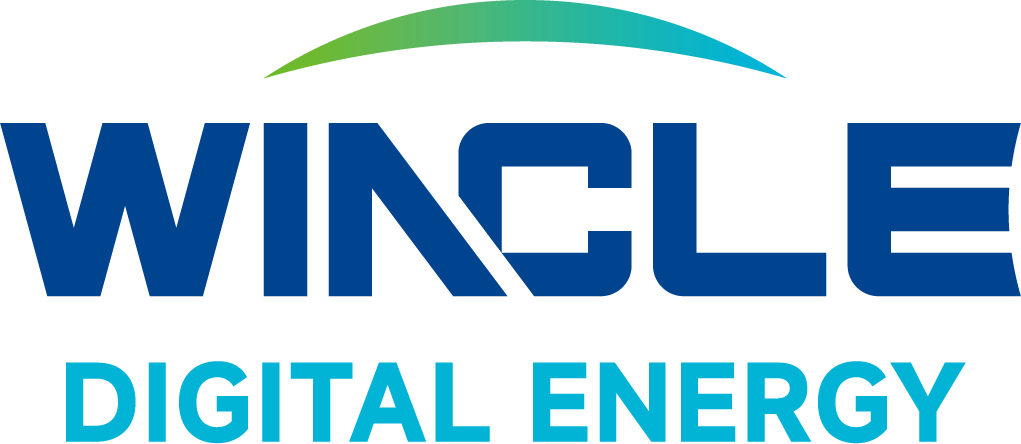Unlock the Benefits of UL Certification for 96kWh Energy Storage
Release time:
2025-07-16
Source:
Unlock the Benefits of UL Certification for 96kWh Energy Storage
Table of Contents
- What is UL Certification?
- Importance of UL Certification in Energy Storage
- Understanding 96kWh Energy Storage Systems
- Key Benefits of UL Certification for 96kWh Energy Storage
- Enhancing Product Safety and Reliability
- Gaining Competitive Advantage in the Market
- Streamlining Regulatory Compliance
- Future-Proofing Your Energy Storage Systems
- Conclusion
What is UL Certification?
UL Certification stands for Underwriters Laboratories Certification, a globally recognized mark of quality and safety. This certification signifies that a product has been tested against rigorous safety standards and meets or exceeds specific performance criteria. In the context of energy storage systems, UL certification helps ensure that devices are safe for consumer use and compliant with industry standards.
Importance of UL Certification in Energy Storage
As the demand for clean energy solutions increases, the significance of UL certification in energy storage grows correspondingly. With more users relying on battery systems for residential and commercial energy storage, ensuring safety and efficiency is paramount. UL certification acts as a hallmark of quality assurance, thus enhancing consumer trust and encouraging wider adoption of energy storage technologies.
The Role of UL in Industry Standards
Underwriters Laboratories is known for its extensive work in developing safety standards across various industries. In energy storage, UL plays an essential role in defining performance benchmarks that manufacturers must meet. This not only assists in improving product innovation but also protects consumers and the environment from substandard products.
Understanding 96kWh Energy Storage Systems
A 96kWh energy storage system typically signifies a battery solution capable of storing approximately 96 kilowatt-hours of energy. These systems are pivotal for renewable energy applications, as they allow users to store excess energy generated from solar panels or wind turbines for later use. The implications of efficient energy storage are immense, ranging from cost savings to reliability in energy supply.
Applications of 96kWh Energy Storage
These storage systems are particularly useful in various applications, including:
- Residential Use: Homeowners can use 96kWh systems to optimize solar energy utilization, ensuring power availability even during outages.
- Commercial Use: Businesses can leverage these systems for peak shaving, reducing energy costs by storing energy during off-peak hours and using it during peak demand.
- Utility Scale: Utility providers can deploy 96kWh systems to balance supply and demand, enhancing grid stability.
Key Benefits of UL Certification for 96kWh Energy Storage
Achieving UL certification offers several distinct advantages for manufacturers and consumers alike:
1. Enhanced Safety and Reliability
One of the most significant advantages of UL certification is the assurance of enhanced safety. Products undergo rigorous testing to evaluate risks associated with fire, electrical faults, and other hazards. A UL-certified 96kWh energy storage system provides users with peace of mind, knowing that their investment adheres to safety standards.
2. Improved Marketability
A product that carries the UL mark stands out in the marketplace. Consumers are increasingly discerning about safety, and UL certification can set a product apart from competitors. This improved marketability can lead to increased sales and a strong reputation within the energy storage market.
3. Greater Consumer Trust
UL certification fosters greater consumer trust. Customers are more likely to purchase energy storage solutions that have been certified, as they believe these products are rigorously tested and meet high-quality standards. This trust translates into brand loyalty and repeat purchases over time.
4. Compliance with International Standards
In a global market, compliance with internationally recognized standards is crucial. UL certification ensures that products meet the necessary criteria for various markets, thereby facilitating easier entry into international markets.
5. Access to New Markets
Many governmental and institutional buyers require UL certification for energy storage products. By obtaining this certification, manufacturers can gain access to new markets and opportunities that were previously unavailable.
Enhancing Product Safety and Reliability
With safety being a foremost concern in energy storage systems, UL certification plays a vital role in enhancing product safety and reliability. The rigorous testing process evaluates potential risks and establishes safety measures, which can significantly reduce the likelihood of failures that could lead to catastrophic outcomes. These measures include:
Fire Safety Standards
UL certification ensures that energy storage systems meet stringent fire safety standards, which encompass materials used, thermal runaway prevention, and overall product design. This focus on safety minimizes risks associated with battery malfunctions.
Electrical Safety Standards
Electrical safety is another critical component of UL certification. Energy storage systems must pass tests related to electrical performance, such as short circuit tests and insulation requirements. This guarantees that the products can handle operational stresses without failure.
Gaining Competitive Advantage in the Market
In a rapidly evolving energy market, staying ahead of the competition requires more than just innovation; it demands credibility. By investing in UL certification, manufacturers can gain a significant competitive advantage. A UL-certified product is more likely to be chosen over non-certified alternatives due to the perceived quality and reliability associated with the UL mark.
Marketing Strategies for UL-Certified Products
Effective marketing strategies that highlight UL certification can further enhance product visibility. Some recommended strategies include:
- Highlighting Certification in Marketing Materials: Clearly display the UL mark in all promotional materials to emphasize the safety and quality of the product.
- Educational Campaigns: Educate potential customers about the benefits of UL certification and how it contributes to product safety and reliability.
- Engaging with Industry Influencers: Collaborate with industry experts and influencers who can validate the importance of UL certification in energy storage solutions.
Streamlining Regulatory Compliance
Regulatory compliance can often be a daunting aspect of manufacturing energy storage systems. With UL certification, manufacturers can simplify this process significantly. The certification itself is a form of assurance that products meet the requirements of multiple regulatory bodies.
Understanding Regulatory Frameworks
UL certification helps navigate the complex regulatory landscape governing energy storage systems. Many regions have specific regulations regarding battery safety, performance, and environmental impact. By obtaining UL certification, manufacturers can ensure that their products align with these regulations, reducing the risk of costly compliance issues.
Future-Proofing Your Energy Storage Systems
As technology continues to evolve, so do safety standards and consumer expectations. UL certification not only validates the current safety and performance of 96kWh energy storage systems but also sets a foundation for future enhancements. With ongoing updates and revisions to UL standards, manufacturers can stay ahead of the curve and continuously improve their products.
Staying Abreast of Technology Trends
UL certification encourages manufacturers to stay informed about the latest advancements in energy storage technology. This proactive approach ensures that products can adapt to future market needs and consumer preferences, ultimately leading to sustained success in the energy storage industry.
Conclusion
UL certification is not just a mark of safety; it is a powerful tool that unlocks numerous benefits for manufacturers and end-users of 96kWh energy storage systems. By ensuring compliance with rigorous safety standards, enhancing product reliability, and increasing marketability, UL certification paves the way for broader market acceptance and consumer trust. As the energy landscape continues to evolve, investing in UL certification will be a wise choice for manufacturers looking to secure their position in the competitive energy storage market. Embrace the benefits of UL certification today and unlock the true potential of your energy storage solutions.
Frequently Asked Questions (FAQs)
1. What does UL certification involve?
UL certification involves a series of rigorous tests and evaluations to ensure that a product meets safety and performance standards set by Underwriters Laboratories.
2. How does UL certification benefit consumers?
UL certification assures consumers that the product has been tested for safety and reliability, giving them confidence in their purchase.
3. Is UL certification required by law?
While not always required by law, many regulatory bodies and organizations mandate UL certification for specific products in certain markets.
4. How can manufacturers obtain UL certification?
Manufacturers can obtain UL certification by submitting their products for testing and evaluation by Underwriters Laboratories, following their guidelines and standards.
5. What are the costs associated with obtaining UL certification?
The costs can vary based on the complexity of the product and the testing required. It is advisable for manufacturers to contact UL directly for a detailed estimate based on their specific needs.
ul certification 96kWh Energy Storage and EV Charging Cabinet
latest news












